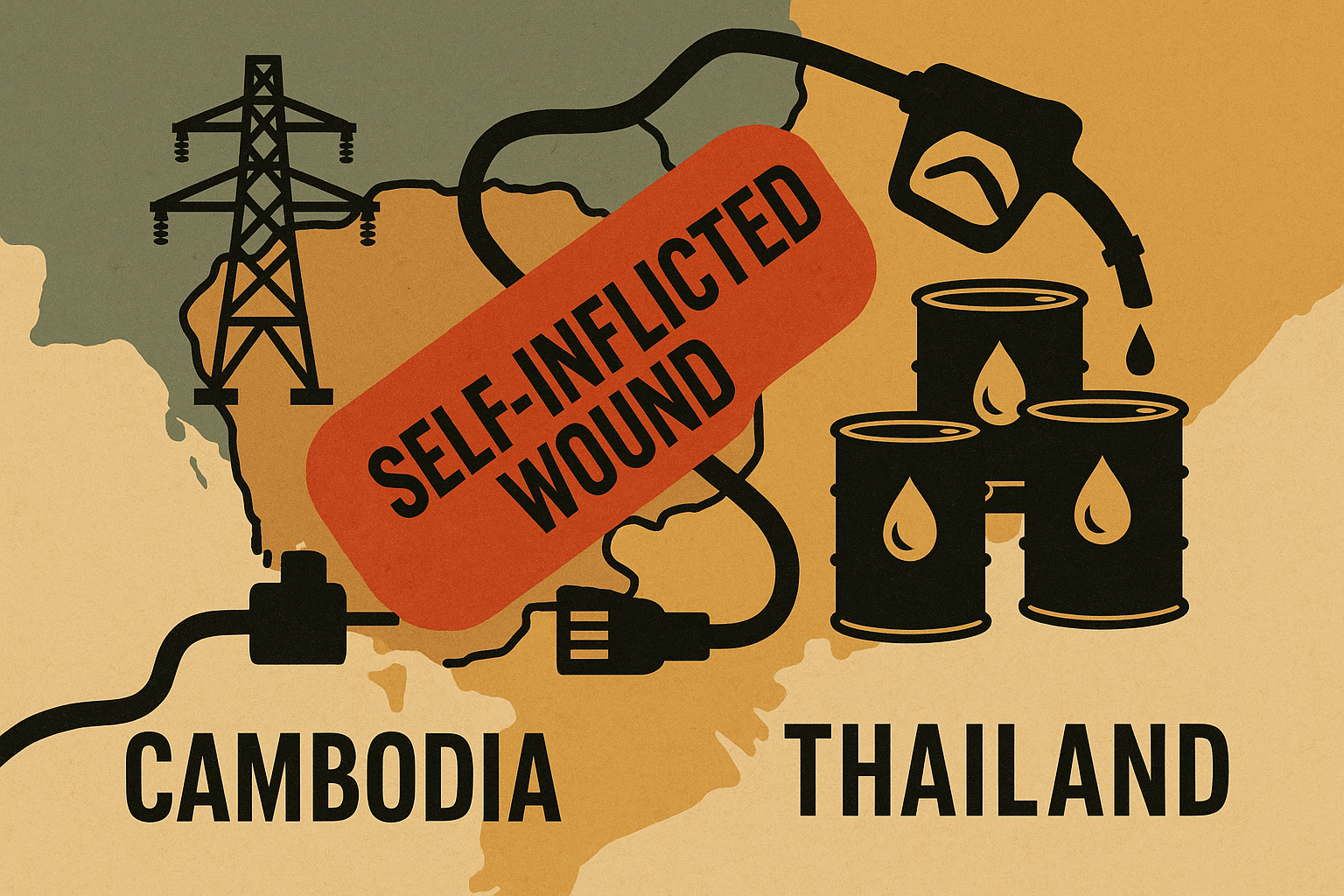Recent tensions between Cambodia and Thailand, ignited by border disputes, have seen some Thai extremists and political analysts advocating for a strategy of economic pressure – threatening to cut off internet, electricity, and even gasoline exports to Cambodia.1 While seemingly a potent lever given Thailand’s larger economy, a closer look at the trade dynamics reveals that such tactics are increasingly likely to backfire, ultimately strengthening Cambodia’s self-reliance and leading to significant losses for Thailand.
The trade imbalance between the two nations is indeed substantial. In 2024, bilateral trade between Cambodia and Thailand reached $4.29 billion, with Cambodian exports to Thailand at $844.9 million and Thai imports rising to $3.44 billion. This resulted in a trade deficit of approximately $2.6 billion for Cambodia. In the first four months of 2025, Thai imports to Cambodia continued to rise, reaching $1.17 billion, while Cambodian exports to Thailand saw a slight decline to $327.78 million, further widening the deficit. Key Thai exports to Cambodia include mineral fuels, vehicles, electrical equipment, beverages, and machinery.
This imbalance is precisely why the proposed pressure tactics are a double-edged sword for Thailand. By threatening to cut off essential supplies like internet, electricity, and gasoline, Thailand is essentially telling its customer – a significant one at that – to look elsewhere. And Cambodia, far from simply surrendering, appears to be doing just that.
Cambodia has been proactively working to diversify its trade partners and reduce its dependence on Thailand over the past decade, shifting towards countries like China, Vietnam, Malaysia, and Singapore. While there may be short-term disruptions, especially for border communities and certain import-dependent sectors, Cambodia’s resilience and adaptability are increasingly evident. For instance, in response to recent border restrictions and threats, Cambodia has already banned Thai movies and TV shows, stopped the import of Thai fruits and vegetables, and reportedly curtailed its reliance on Thai internet links and power supply.
The very products Thailand threatens to withhold are often those Cambodia is actively seeking to substitute. For example, while Cambodia relies on Thai gasoline, Cambodian leaders have firmly stated that they would not collapse if imports cease, suggesting alternative sources like Vietnam are readily available. Similarly, with agricultural products, while immediate shortages for some sellers have been reported, the Cambodian government is actively promoting local produce and encouraging imports from other nations like Vietnam, China, and the United States. This move, in turn, boosts Cambodia’s domestic agricultural sector and reduces its vulnerability to external pressures.
Furthermore, Thai businesses and industries themselves stand to lose significantly from a prolonged trade disruption. Thai exports to Cambodia account for a substantial portion of their cross-border trade, with major checkpoints facilitating nearly 200 billion baht annually. Disruptions in this flow would directly impact Thai producers and exporters. The threats to restrict Cambodian labor in Thailand, where an estimated 500,000 to 800,000 Cambodian workers are employed in labor-intensive industries, also pose a significant risk to Thailand’s own economy.
In essence, the more extreme the threats and pressure tactics employed by certain elements in Thailand, the more Cambodia is compelled to accelerate its drive for self-sufficiency and diversify its economic relationships. This not only diminishes Thailand’s leverage in the long run but also opens doors for Cambodian local brands and industries to flourish, filling the void left by disrupted Thai imports. The current dispute, therefore, serves as a stark reminder: in an interconnected global economy, weaponizing trade can quickly become a self-inflicted wound, leading to lost revenue and market share for the aggressor, and inadvertently fostering resilience and growth in the targeted nation.




Join The Discussion